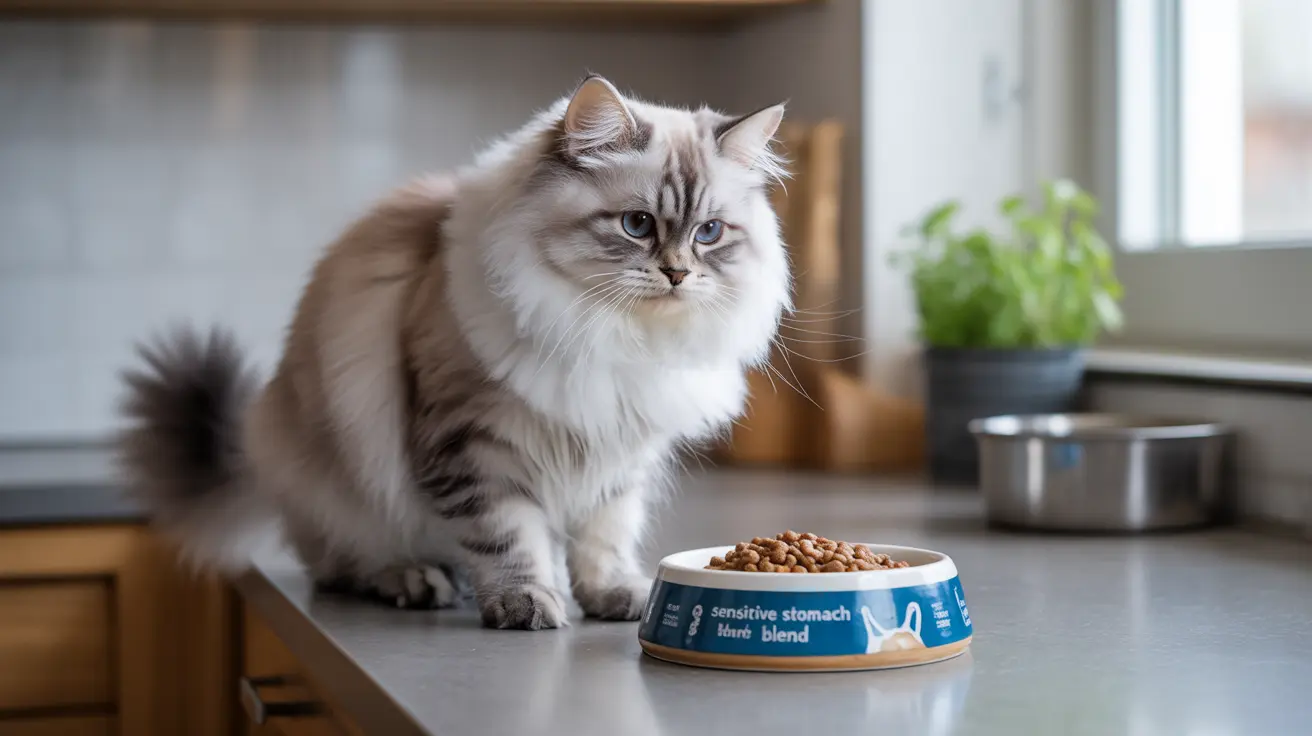If you're a cat owner, understanding cat digestive issues is crucial for maintaining your pet's health and wellbeing. Digestive problems in cats can range from mild stomach upsets to serious gastrointestinal diseases, and recognizing the signs early can make a significant difference in your cat's recovery.
In this comprehensive guide, we'll explore the most common digestive issues that affect cats, their symptoms, causes, and treatment options. We'll also provide expert advice on when to seek veterinary care and how to support your cat's digestive health naturally.
Key Signs of Digestive Problems in Cats
Cats are masters at hiding illness, but there are several telltale signs that may indicate digestive issues:
- Frequent vomiting or regurgitation
- Changes in appetite or water consumption
- Diarrhea or constipation
- Visible weight loss
- Lethargy or decreased activity
- Excessive grooming of the abdomen
- Unusual vocalization when using the litter box
Common Causes of Feline Digestive Issues
Dietary Problems
Many digestive issues stem from diet-related causes:
- Sudden changes in food
- Food allergies or sensitivities
- Eating spoiled food or non-food items
- Low-quality cat food
Medical Conditions
Several medical conditions can trigger digestive problems:
- Inflammatory Bowel Disease (IBD)
- Parasitic infections
- Bacterial or viral infections
- Pancreatitis
- Gastrointestinal lymphoma
Diagnosis and Treatment Options
Proper diagnosis is essential for effective treatment. Your veterinarian may recommend:
- Physical examination
- Blood work and urinalysis
- Fecal testing
- Imaging studies (X-rays or ultrasound)
- Specialized tests for specific conditions
Treatment Approaches
Treatment typically involves a multi-faceted approach:
- Dietary modifications
- Medication when necessary
- Fluid therapy for dehydration
- Probiotics and digestive supplements
- Regular monitoring and follow-up care
Prevention and Management
Taking proactive steps can help prevent digestive issues:
- Maintain a consistent, high-quality diet
- Ensure fresh water is always available
- Regular deworming and parasite prevention
- Stress reduction in the home environment
- Regular veterinary check-ups
Frequently Asked Questions
What are the most common symptoms of cat digestive issues and when should I call the vet?
Call your veterinarian if you notice persistent vomiting (more than 24 hours), diarrhea, loss of appetite, significant weight loss, or lethargy. Immediate attention is needed if you see blood in vomit or stool, or if your cat shows signs of severe pain.
How can I tell if my cat has worms or another type of parasite causing digestive problems?
Common signs of parasites include visible worms in stool or vomit, weight loss despite normal eating, a pot-bellied appearance, and diarrhea. Regular veterinary check-ups and fecal testing can detect parasites before symptoms become severe.
What foods should I avoid or give to my cat with digestive issues to help them feel better?
Avoid dairy products, raw foods, and sudden diet changes. Consider easily digestible foods recommended by your vet, such as plain boiled chicken or specialized prescription diets designed for sensitive stomachs.
Are there natural remedies or supplements that support a cat's digestive health?
Probiotics, digestive enzymes, and fiber supplements can support digestive health when used under veterinary guidance. However, always consult your vet before starting any supplements.
What causes chronic diarrhea in cats and how can it be treated at home or by a veterinarian?
Chronic diarrhea can be caused by food allergies, IBD, parasites, or other underlying conditions. While minor cases might respond to dietary changes, persistent diarrhea requires veterinary evaluation and treatment, which may include medication, special diets, or other interventions.
Conclusion
Understanding and properly managing cat digestive issues is essential for maintaining your feline friend's health. While some mild digestive problems can be managed at home, always consult with your veterinarian when symptoms persist or worsen. With proper care, attention, and preventive measures, many digestive issues can be successfully managed or prevented entirely.






